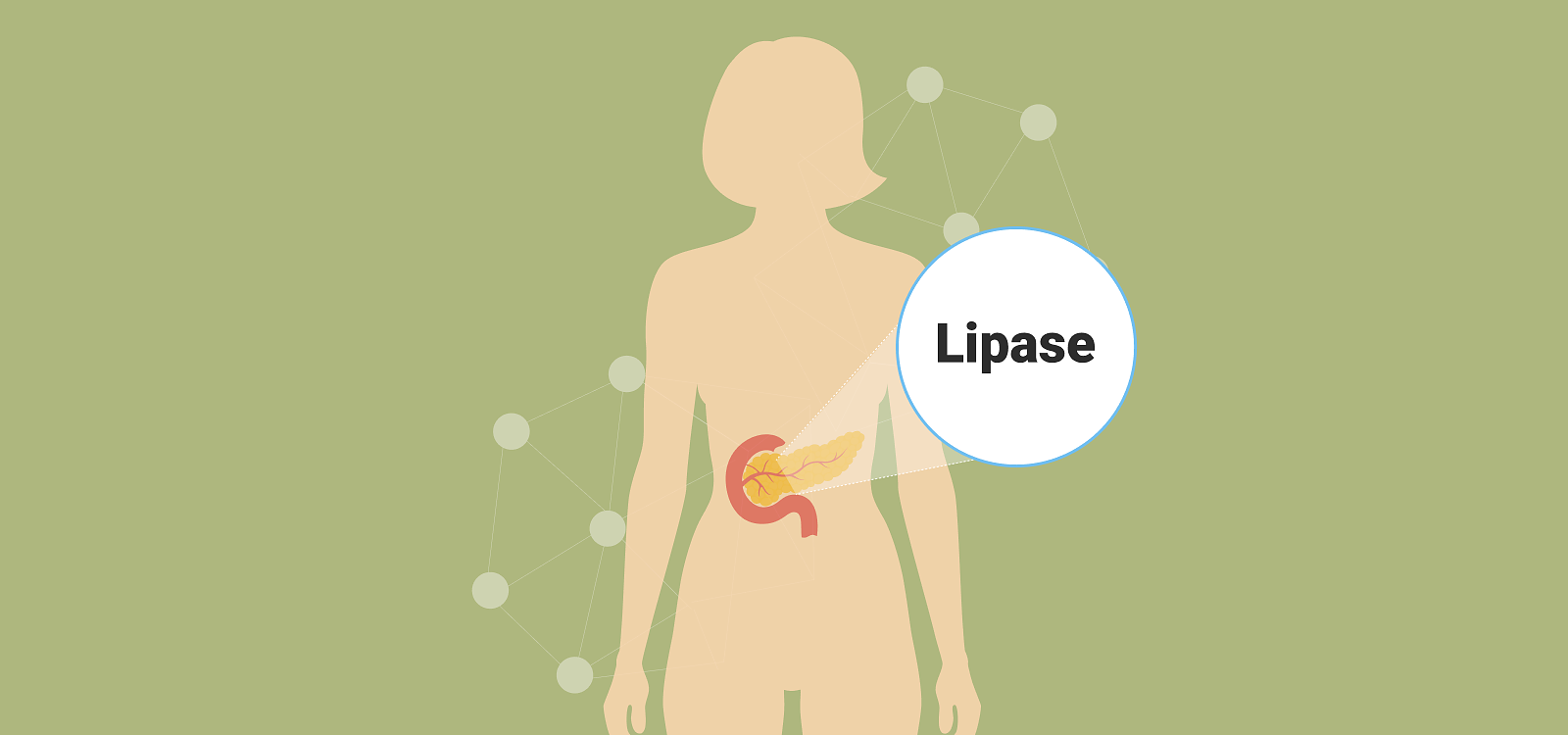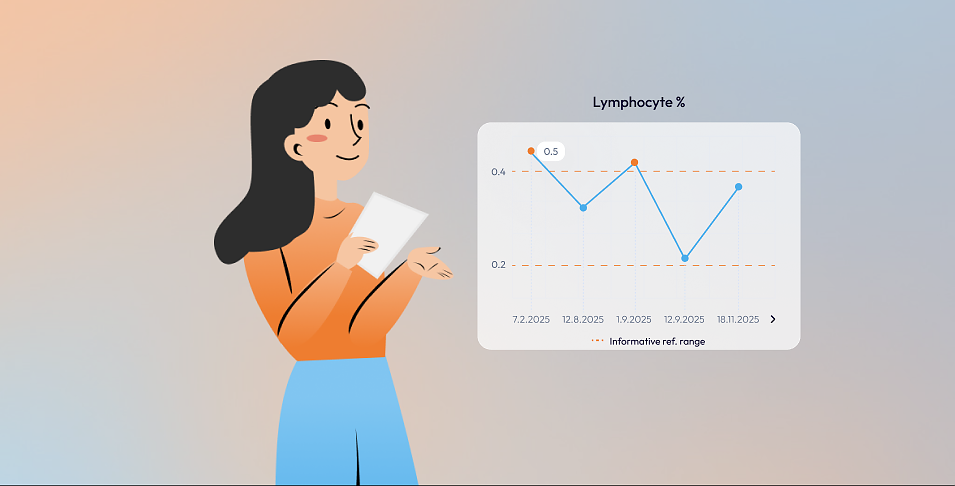Parameter Tuesday: LIPASE
Lipase is an enzyme produced by your pancreas that helps your body digest fats. When you ingest food, the pancreas releases lipase into your digestive tract, which helps break down fats. It is normal for small amounts of lipase to be present in your blood. However, a high lipase concentration might indicate a problem with the pancreas.
High concentrations of lipase in blood serum are usually connected to pancreatitis or other conditions affecting the pancreas. Pancreatitis is an inflammation of the pancreas, where the digestive enzymes that the pancreas normally releases to help digest food start digesting the pancreas itself. Pancreatitis can be diagnosed as acute or chronic. In acute pancreatitis, lipase levels in the blood quickly rise, and the value is usually 5-10 (in extreme cases, even 50) times higher than the highest reference value. High lipase values in acute pancreatitis persist for approximately five days. However, high lipase levels can also occur due to gallstones, bowel obstruction, cirrhosis, a stomach ulcer, pancreatic cancer and celiac disease.
An important note here is that not all lipase values that are out of the reference range mean serious disease. For example, birth control pills, codeine, or morphine can cause a rise in your lipase levels.
Low levels of lipase in your blood are less common than high levels; they can indicate a problem in the cells producing lipase. It might be an indication that cells are damaged, which can happen due to certain chronic diseases like cystic fibrosis or chronic pancreatitis.






